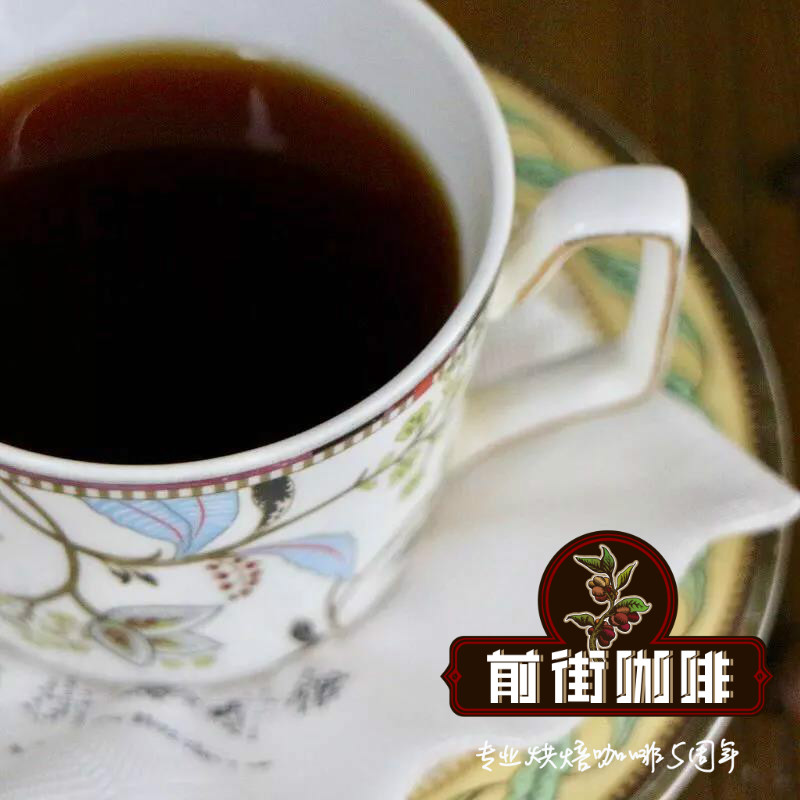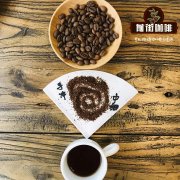How about the flavor of Jamaican coffee beans? what are the differences in the characteristics of Jamaica Blue Mountain beans?

Professional coffee knowledge exchange more coffee bean information please follow the coffee workshop (Wechat official account cafe_style)
Taste description of Jamaican Coffee
There are apple, lemon, jasmine, rose aromas, soft fruit acidity and a little distinct, distinct fruit acidity and transformed into soft sweetness, moderate oil texture, smooth throat, all the flavors are perfectly balanced.
Product introduction
Jamaica Coffee Association (CIBOJ) selected Blue Mountain Coffee as quality Assurance! Extremely rare and precious balls of beans!
Sherwood Coffee Manor is owned by a small family in Jamaica and its operating office is located in the town of Hagley Gap in the St. Thomas producing area in southeastern Jamaica. Its output accounts for 2% of the total harvest of Blue Mountain Coffee. Handmade coffee is regarded as the best coffee in Jamaica and is selected as a quality-guaranteed Blue Mountain coffee by the Jamaican Coffee Association (CIBOJ).
As of 2015, Sherwood Forest is one of the estates owned by RSW Manor. At present, RSW retains only the highest elevation block Sherwood, and Sherwood has been independent ever since. The estate and processing plant have been in operation since 1797 and were run by the Deichman family in the 1950s. At that time, the father of the current operator Charles bought the land and replanted the farmland, which is about 1372m above sea level. In 1999, Deichman upgraded the manor and processing plant equipment to handle raw beans with new and modern equipment, while retaining traditional technology and implementing strict environmental protection policies.
About half of the male and female employees of the Jamaican Coffee Farm are made up of men and women, and all the management and employees are from local villages. Due to the high altitude, the shady clouds on the mountains in the afternoon are very beneficial to the growth of coffee trees, avoiding the overheated sun at noon and making the growth and nutrient absorption of coffee fruits more complete. After other Blue Mountains in Jamaica, the harvest season is from March to June each year, and fresh hand-picked red fruits from proprietary estates and a small number of fresh red fruits from well-known Blue Mountain small farms such as Arntully and Moy Hall are sent to the washing plant in Sherwood.
Sherwood insists that it will never be taken from Jamaican coffee of unknown origin. The picked red fruit was immediately peeled and fully fermented after 24 hours of washing, so as to improve the flavor. During the washing process, the pulp was rudely shaved off without machine or brush brushing, and the pulp was naturally peeled off only by fermentation. Then the moisture content of raw beans was reduced to 11.5% by 100% full-sun drying, and artificial drying was completely abandoned. It also makes the overall aroma and consistency of the coffee thicker because of this sun-drying process. After drying, the shelled beans are stored in an underground warehouse with temperature and humidity control for at least eight weeks, and then shelled. The warehouse is equipped with two commercial dehumidifiers and two tons of air conditioning equipment, and the environment is controlled at 19.4 degrees and 52% of temperature and humidity. In order to ensure quality, Sherwood only provides small batches of hand-picked raw beans and well-stored raw beans to customers, and does not hoard raw beans for future sales. In the process of dry treatment, raw coffee beans are sent to the warehouse for storage the next night until delivered to the Jamaican Coffee Association (CIBOJ).
CIBOJ will check the size, defects and water content of raw beans by color inspection and cup testing. Finally, these refined Sherwood raw beans will be exported under the trademark "SFCC" (Sherwood Forest Coffee Co.).
Important Notice :
前街咖啡 FrontStreet Coffee has moved to new addredd:
FrontStreet Coffee Address: 315,Donghua East Road,GuangZhou
Tel:020 38364473
- Prev

Characteristics of regional flavor of Mexican coffee brewing methods of washed coffee in Chiapas plateau, Mexico
Professional coffee knowledge exchange more coffee bean information please follow the coffee workshop (Wechat official account cafe_style) Mexican coffee mostly comes from the southern Chiapas Plateau (Chiapas) and is very close to Guatemala. The Chiapas Plateau is about 1250 1550 meters above sea level. This Mexican coffee bean has a delicate, thick, moderate and refreshing flavor with a slight sour and sweet cleanliness.
- Next

Jamaica Coffee Wallenford Blue Mountain Flavor how about Jamaica Wallenford Blue Mountain
Professional coffee knowledge exchange more coffee bean information please follow the coffee workshop (Wechat official account cafe_style) Jamaican coffee in the Blue Mountains of sweet notes, taste as mellow as wine, has always been a favorite of Japanese coffee lovers. Its rare output is the representative of fine coffee, and it is also one of the most expensive coffee in the world. But not all coffee produced in Jamaica can be crowned.
Related
- Detailed explanation of Jadeite planting Land in Panamanian Jadeite Manor introduction to the grading system of Jadeite competitive bidding, Red bid, Green bid and Rose Summer
- Story of Coffee planting in Brenka region of Costa Rica Stonehenge Manor anaerobic heavy honey treatment of flavor mouth
- What's on the barrel of Blue Mountain Coffee beans?
- Can American coffee also pull flowers? How to use hot American style to pull out a good-looking pattern?
- Can you make a cold extract with coffee beans? What is the right proportion for cold-extracted coffee formula?
- Indonesian PWN Gold Mandrine Coffee Origin Features Flavor How to Chong? Mandolin coffee is American.
- A brief introduction to the flavor characteristics of Brazilian yellow bourbon coffee beans
- What is the effect of different water quality on the flavor of cold-extracted coffee? What kind of water is best for brewing coffee?
- Why do you think of Rose Summer whenever you mention Panamanian coffee?
- Introduction to the characteristics of authentic blue mountain coffee bean producing areas? What is the CIB Coffee Authority in Jamaica?

